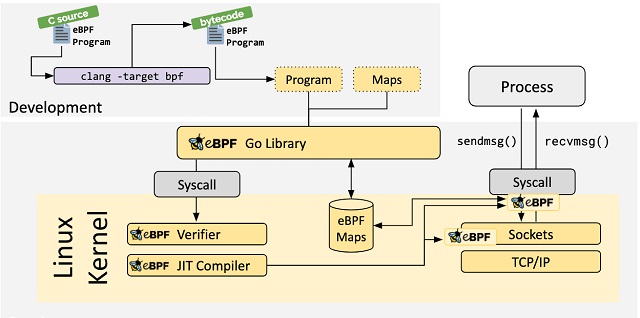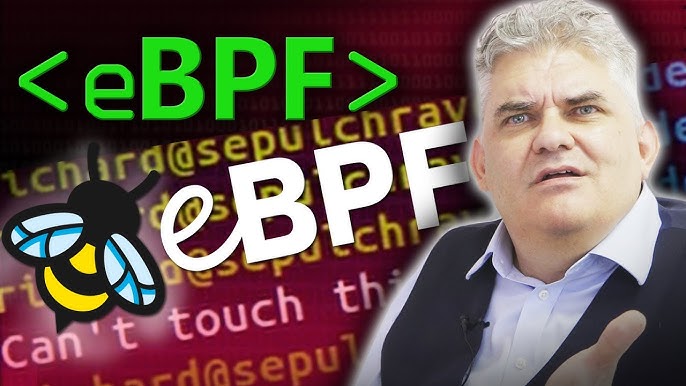Enable eBPF in kernel in openwrt, or extended Berkeley Packet Filter, is a powerful technology that allows for high-performance packet processing and monitoring in the Linux kernel. It has evolved beyond its original packet filtering role to support a wide range of functionalities including network security, performance monitoring, and custom kernel behavior modifications. If you’re running OpenWrt, a popular open-source firmware for embedded devices and routers, enabling eBPF can significantly extend its capabilities.
Understanding eBPF
Enable eBPF in kernel in openwrt is a virtual machine that runs inside the Linux kernel. It allows you to write small programs that execute in response to various events such as network packets, system calls, or tracepoints.

- Network Traffic Filtering: Customizing how network packets are processed.
- Performance Monitoring: Tracking system performance metrics.
- Security Enhancements: Implementing custom security policies.
In the context of OpenWrt, enabling eBPF can enhance network performance, improve security, and provide deeper insights into network traffic.
Prerequisites
Before Enable eBPF in kernel in openwrt, ensure you meet the following prerequisites:
- OpenWrt Installation: You should have OpenWrt installed on your device. The instructions assume you have a working OpenWrt setup.
- Kernel Development Knowledge: Basic understanding of Linux kernel configuration and compilation is beneficial.
- Device Compatibility: Not all devices may support eBPF due to hardware or kernel version limitations.
Steps to Enable eBPF in OpenWrt
1. Check Kernel Version
Ensure that your kernel version supports eBPF. eBPF support has been improved over various kernel versions, so it’s beneficial to be on a relatively recent kernel.
You can check your kernel version by running:
uname -rAs of recent OpenWrt versions, the kernel should be sufficiently updated to support eBPF.
2. Install Required Packages
To utilize eBPF, you need to ensure that the relevant kernel modules and tools are installed. On OpenWrt, you can typically manage packages using the opkg package manager.
Start by updating your package list:
opkg updateInstall the required kernel modules:
opkg install kmod-bpf
opkg install kmod-bpf-ctx
opkg install kmod-bpf-traceThese packages provide the kernel modules necessary for eBPF functionality.
3. Configure Kernel
In the event that the vital portion modules are excluded from your OpenWrt assemble, you might have to reconfigure and accumulate the piece with eBPF support. This step involves downloading the OpenWrt source code and configuring the kernel.
a. Download OpenWrt Source Code
Get the OpenWrt source code:
git clone https://git.openwrt.org/openwrt/openwrt.git
cd openwrtb. Configure OpenWrt
Start the configuration menu:
make menuconfigNavigate to the kernel configuration options. Under Kernel Modules, ensure the following options are enabled:
BPFBPF_SYSCALLBPF_JITBPFILTER
You can find these options under Kernel Modules -> Networking Support -> BPF.
c. Build OpenWrt
After configuring, build the OpenWrt firmware:
makeThis process can take some time and will compile a new firmware image with eBPF support.
d. Flash the New Firmware
Once the build is complete, flash the new firmware to your device. Be cautious and ensure you have a backup of your current configuration.
# Example command (consult OpenWrt documentation for your device)
sysupgrade openwrt-image.bin4. Verify eBPF Support
Check the kernel configuration for eBPF-related options:
zcat /proc/config.gz | grep BPFYou should see lines indicating that eBPF and related options are enabled.
5. Use eBPF Programs
With eBPF enabled, you can start using eBPF programs. You can write eBPF programs in C and load them using tools like bpftool. For example:
a. Install bpftool
Install bpftool if it’s not already available:
opkg install bpftoolb. Write and Load eBPF Programs
Create an eBPF program and load it:
// Example eBPF program (e.g., my_ebpf_program.c)
#include <linux/bpf.h>
#include <linux/if_ether.h>
#include <linux/ip.h>
SEC("filter")
int my_ebpf_program(struct __sk_buff *skb) {
return XDP_PASS;
}Compile and load the program using bpftool.
6. Monitor eBPF Programs
You can use bpftool to monitor and manage your eBPF programs:
bpftool prog listThis command will list all loaded eBPF programs.
Conclusion
Enabling eBPF on OpenWrt can unlock a range of advanced networking and monitoring capabilities. Remember that working with kernel modules and recompiling firmware carries risks, so proceed with caution and ensure you have backups of your configurations. With eBPF enabled, you can harness its power to enhance your network’s performance, security, and observability.

Leave a Reply